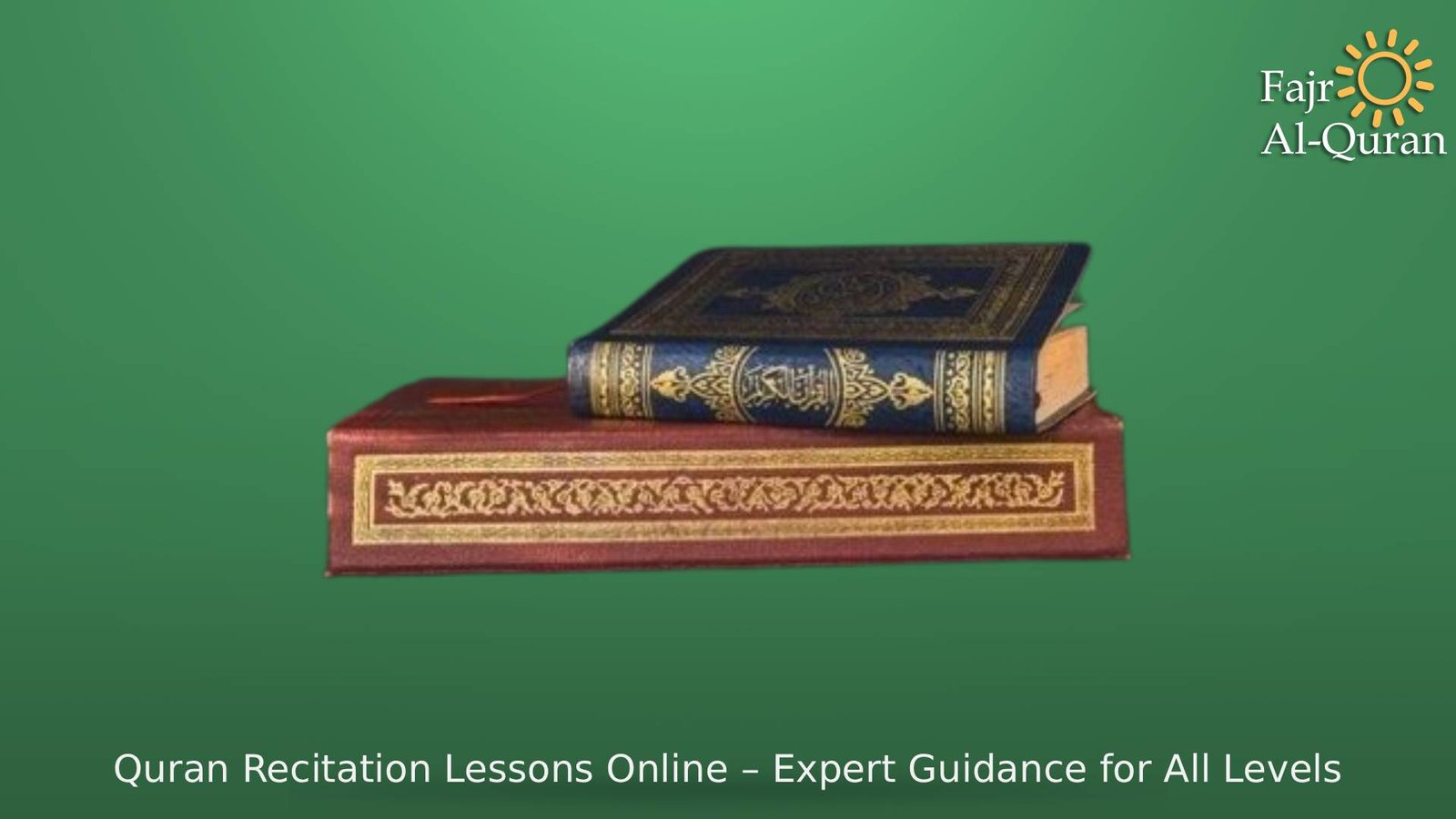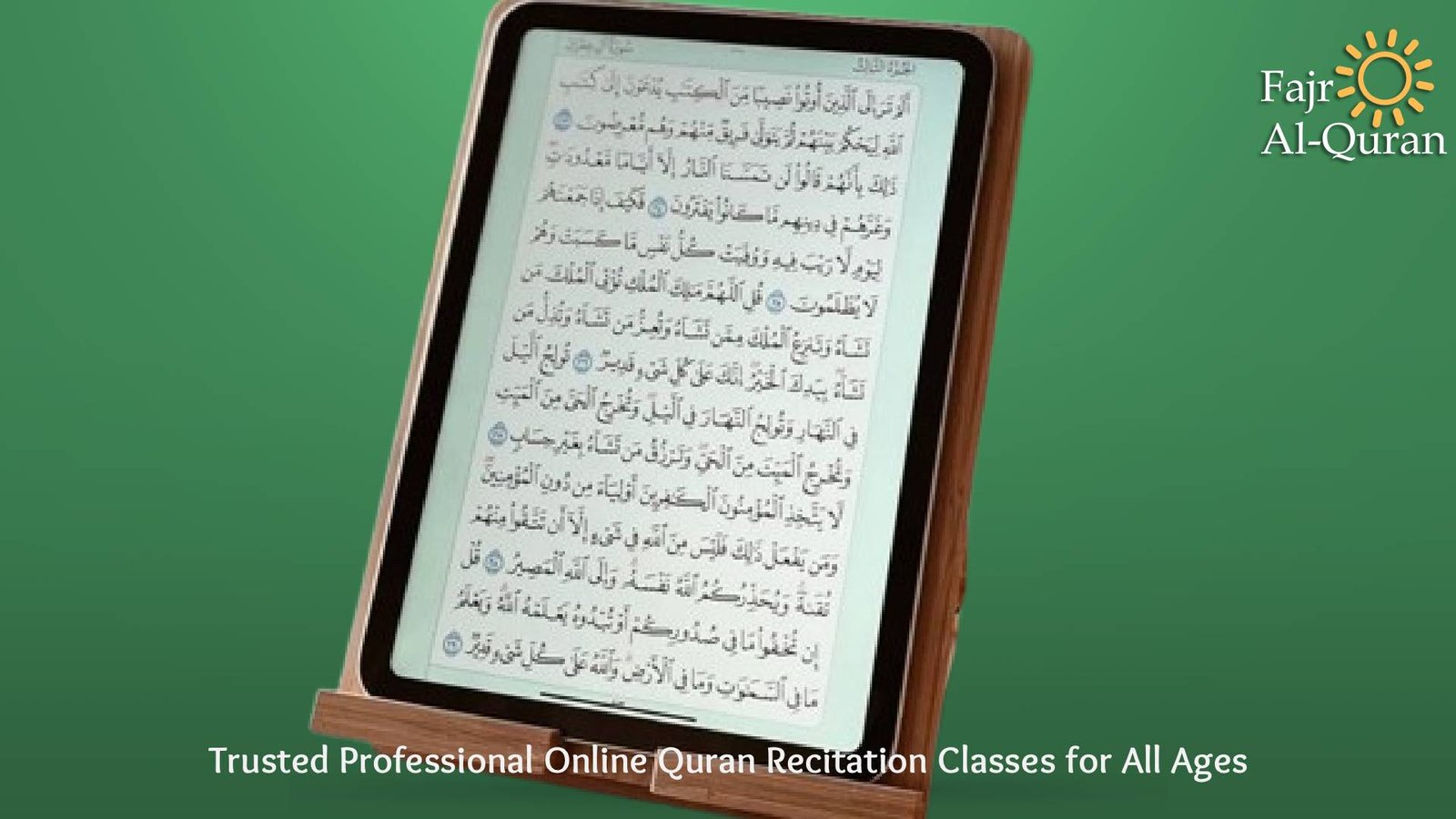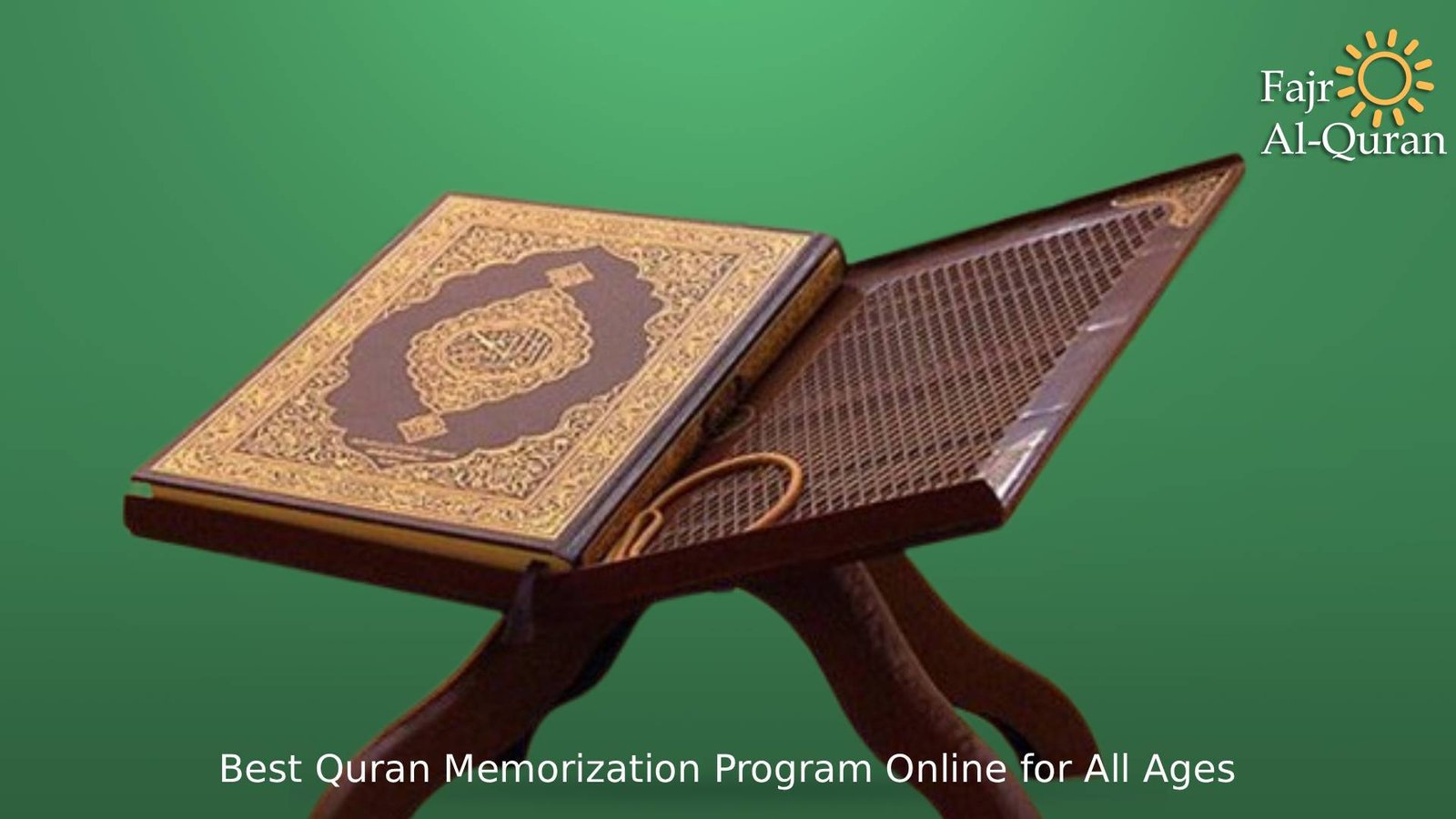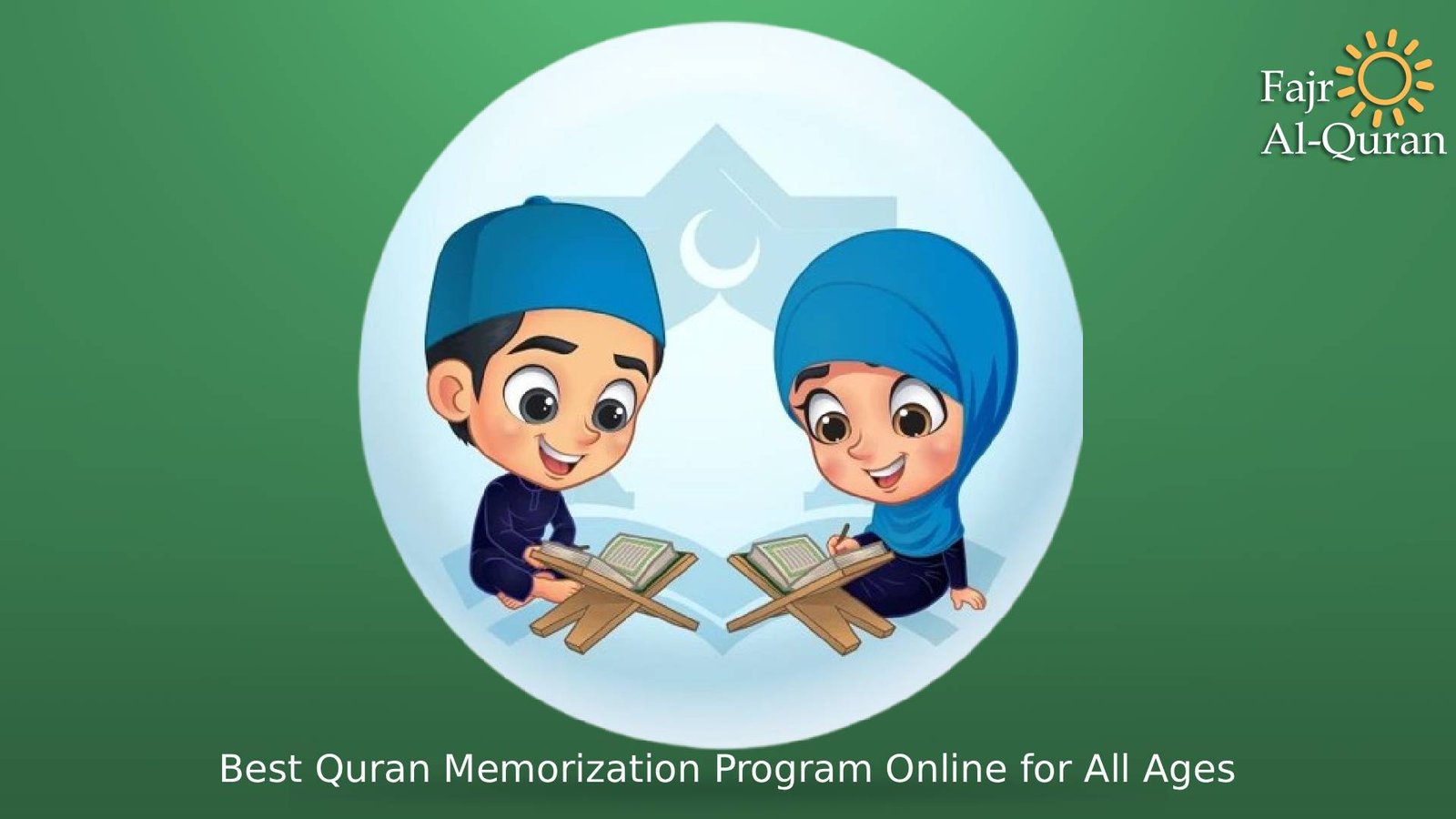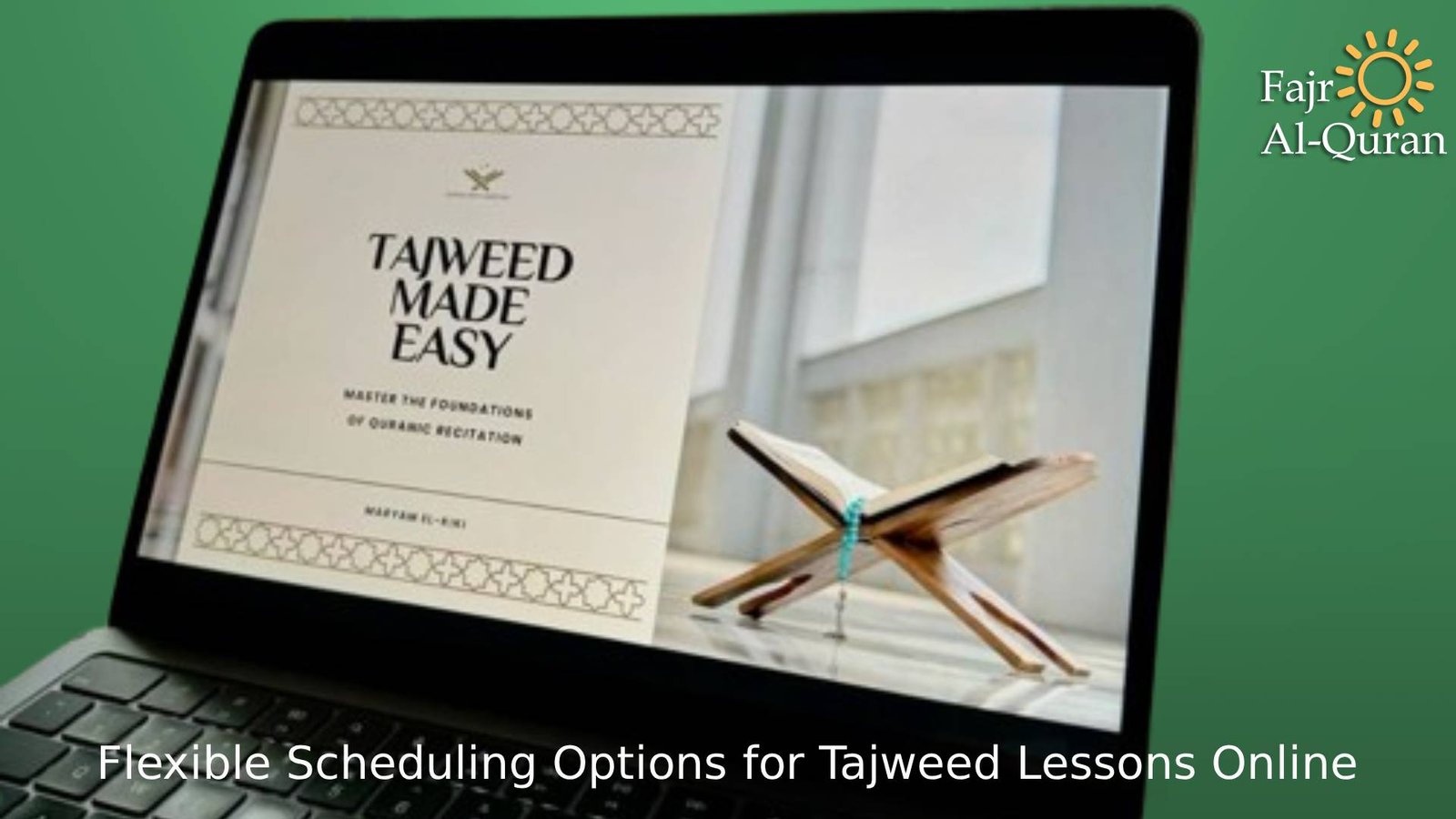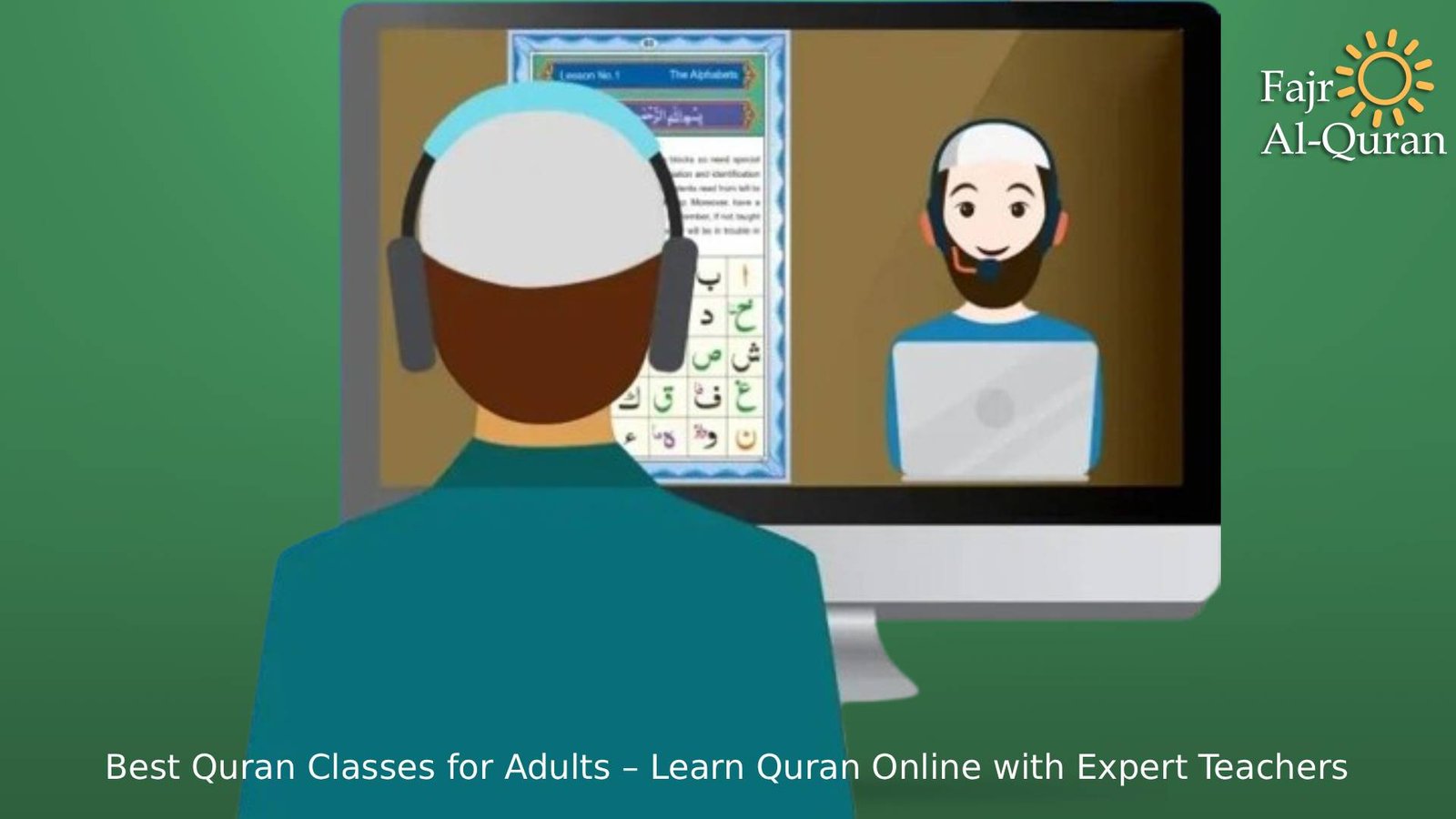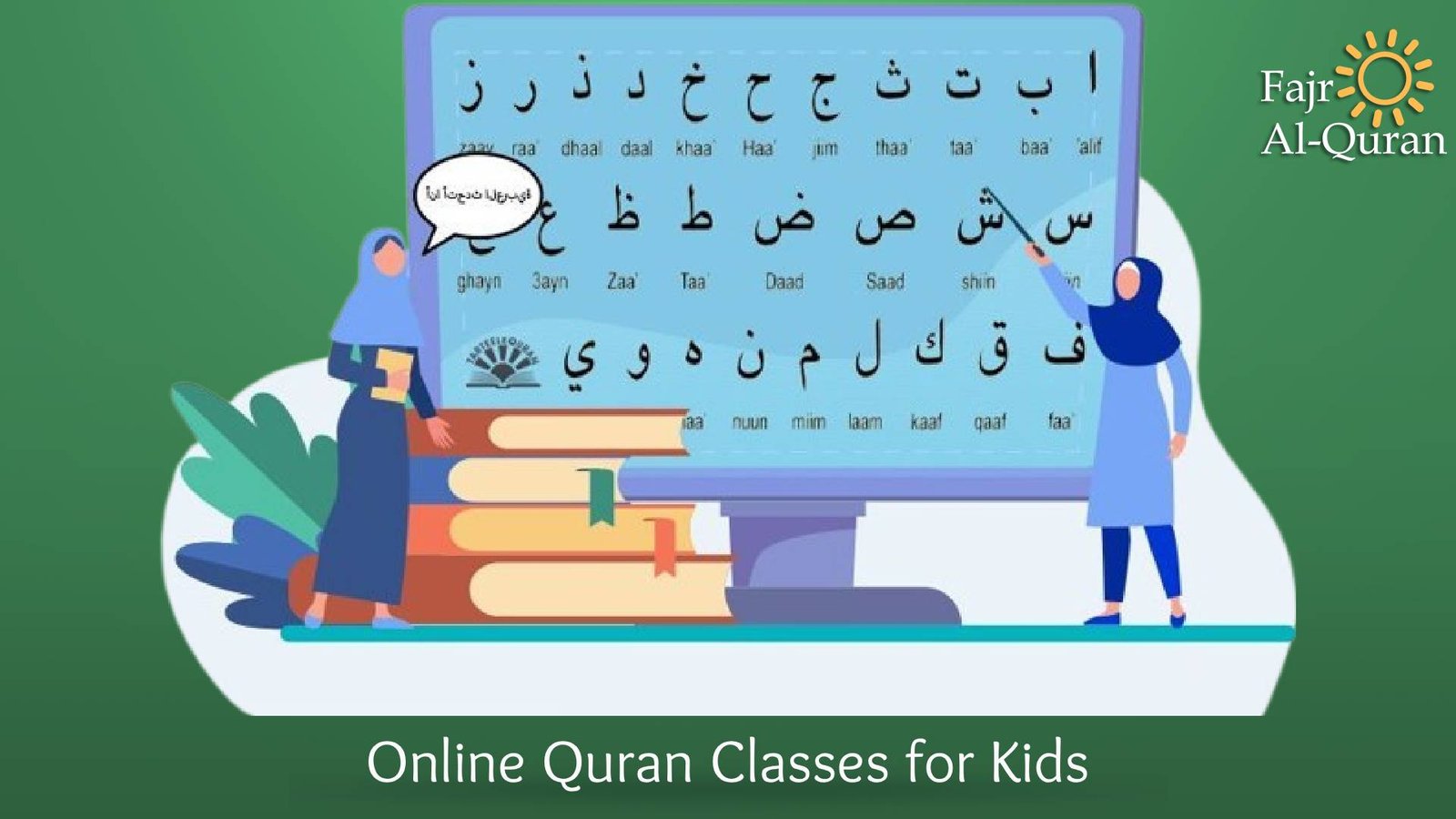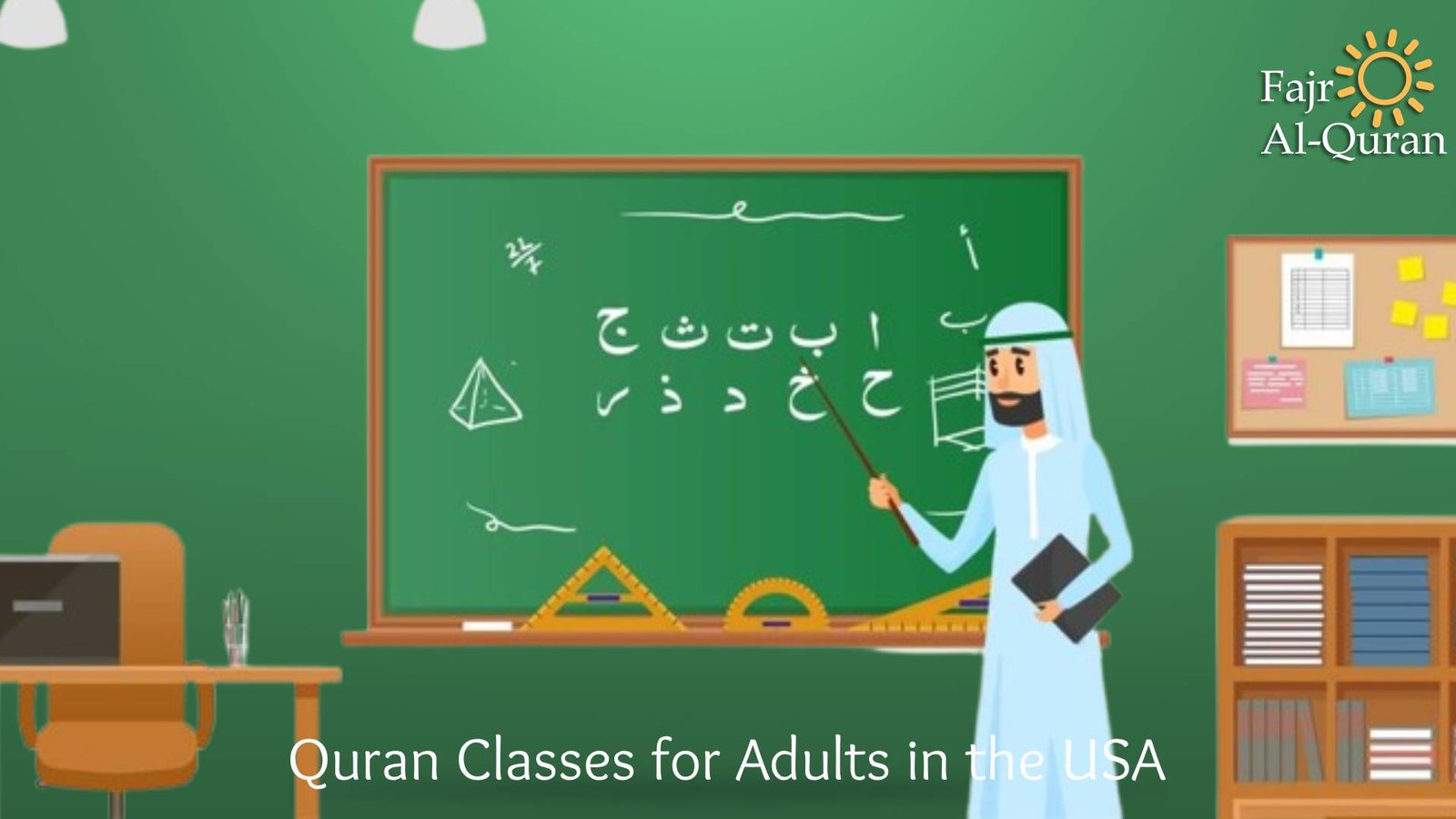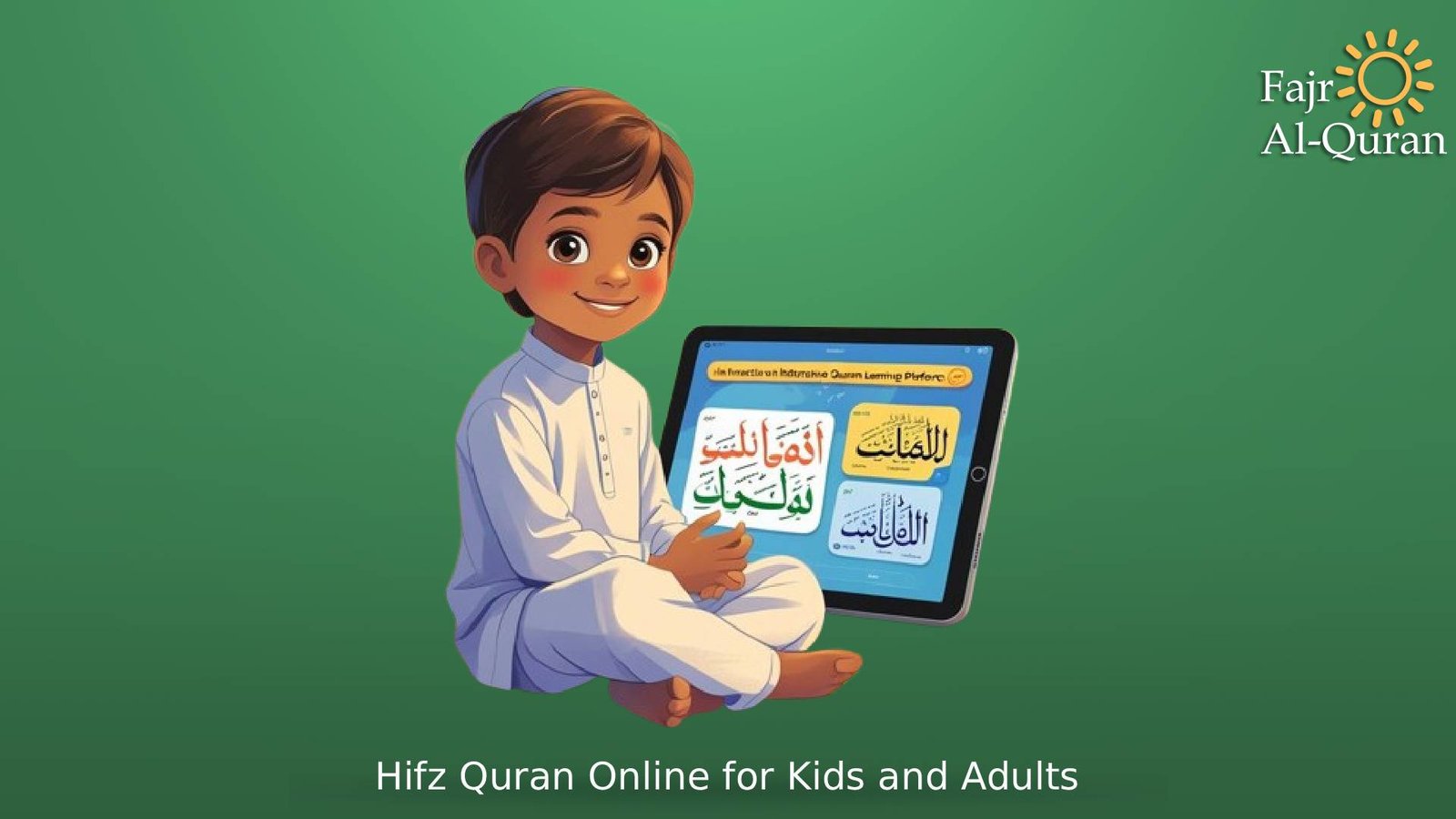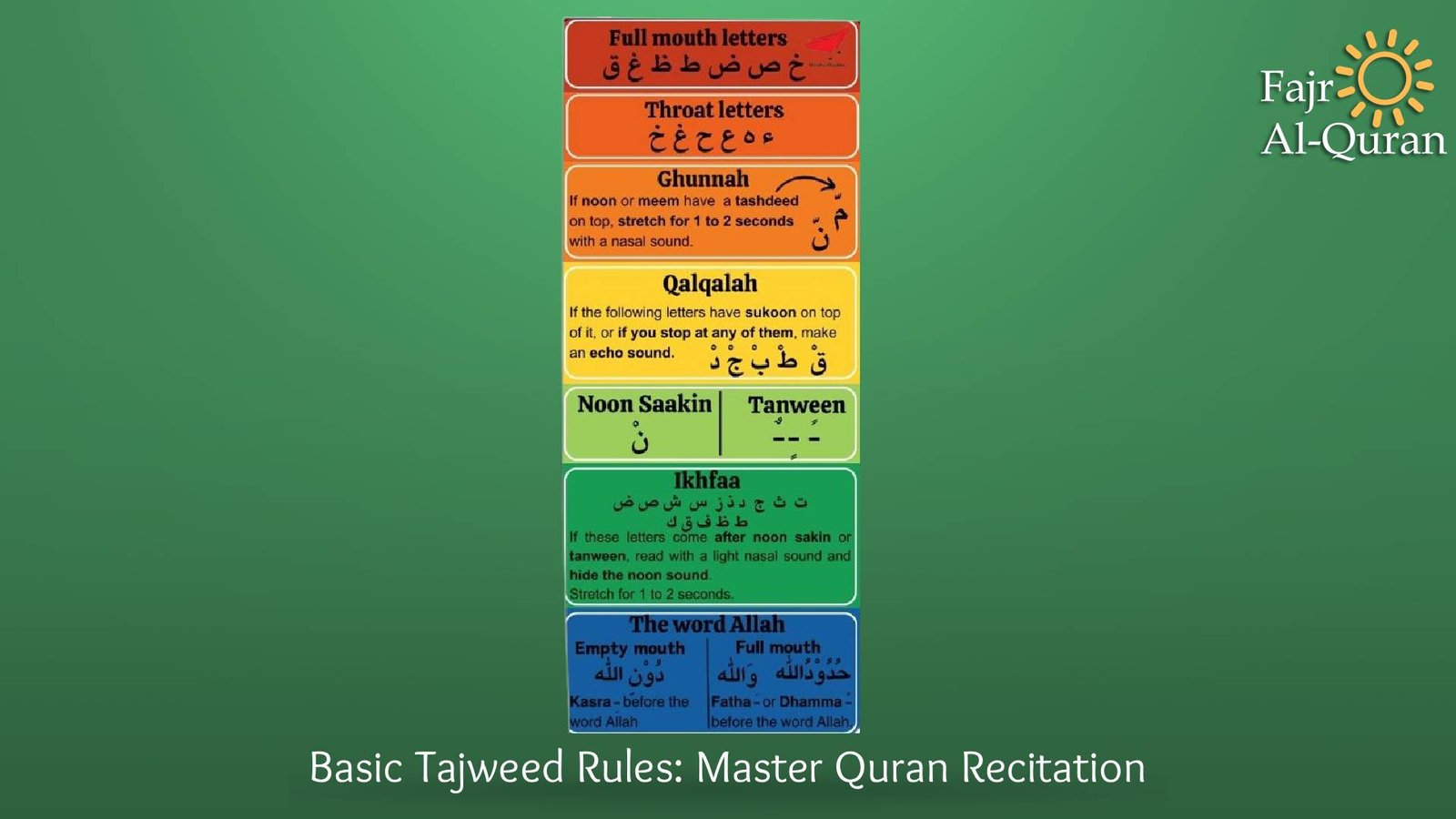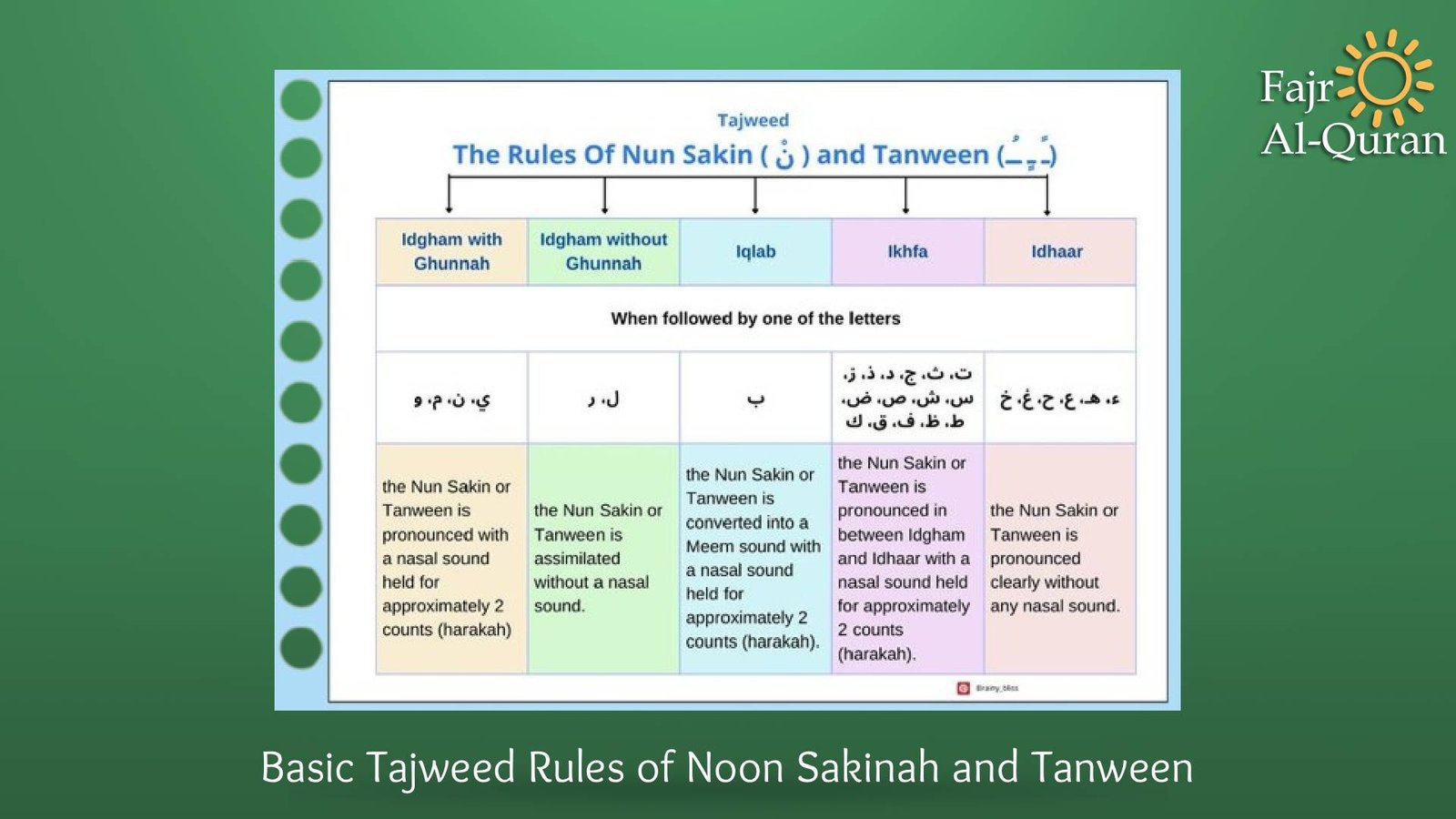Master Quran recitation with proper Tajweed and learn Tajweed Quran online through flexible, personalized classes with certified tutors.
Learning the Holy Quran with correct pronunciation and proper rules is an obligation for every Muslim who wishes to recite the Qur’an as it was revealed. Today, Tajweed Quran online has become easier than ever to learn Tajweed Quran online with qualified and certified teachers, regardless of your location, age, or background. Online Quran education now combines traditional Islamic scholarship with modern interactive tools, offering students worldwide a structured and effective way to master Quran recitation with proper Tajweed.
At the leading platform Fajr Al-Quran Academy, students embark on a spiritual and educational journey designed to help them read the Quran online, understand Tajweed rules, and recite the Qur’an beautifully and accurately. Whether you are a beginner learning Arabic letters or an advanced student aiming to master Tajweed Quran online, professional guidance ensures accuracy, confidence, and consistency.
This article explores how online Tajweed learning works, why certified Quran teachers matter, and how learners of all ages can benefit from a personalized, flexible, and interactive approach to mastering Quran recitation.
Best Tajweed Quran Online Courses for All Levels
Learning to recite the Holy Quran with correct Tajweed is an essential goal for every Muslim, regardless of age or level of experience. Fajr Al-Quran Academy, Best Tajweed Quran Online Courses for All Levels, offers a convenient and effective way to master proper Quranic pronunciation and recitation from the comfort of your home. Tajweed Quran Online Courses are carefully designed to suit beginners who are just starting their Tajweed journey, intermediate learners seeking improvement, and advanced students aiming for perfection.
With expert-qualified tutors, structured lessons, and interactive learning methods, students can progress step by step at their own pace. Flexible schedules, personalized feedback, and one-on-one or group classes make online Tajweed learning accessible to kids, adults, and seniors alike. Choosing the right Tajweed Quran online course ensures accurate recitation, deeper understanding, and a stronger spiritual connection with the Quran, making it an invaluable investment for lifelong learning and worship.
One of the greatest advantages of choosing Tajweed Quran online courses is their ability to cater to learners at every stage. From complete beginners to advanced students, online Quran programs are carefully designed to fit individual needs.
At Fajr Al-Quran Academy, Tajweed courses are divided into multiple levels, ensuring that each student learns at a comfortable pace. Beginners focus on Arabic letters, makharij (points of articulation), and basic Tajweed rules, while intermediate students refine fluency, rhythm, and pronunciation. Advanced learners explore deeper Tajweed principles, including complex rules and application across the Qur’an.
Tajweed Quran classes online use authentic Quranic texts, proper Quran font, Tajweedi colour-coded Quran materials, and audio tools that allow students to listen, repeat, and practice. This layered approach makes learning the Quran online with Tajweed effective, engaging, and spiritually enriching.
Students can start their Quran journey confidently, knowing the program is comprehensive, structured, and suitable for all ages worldwide.
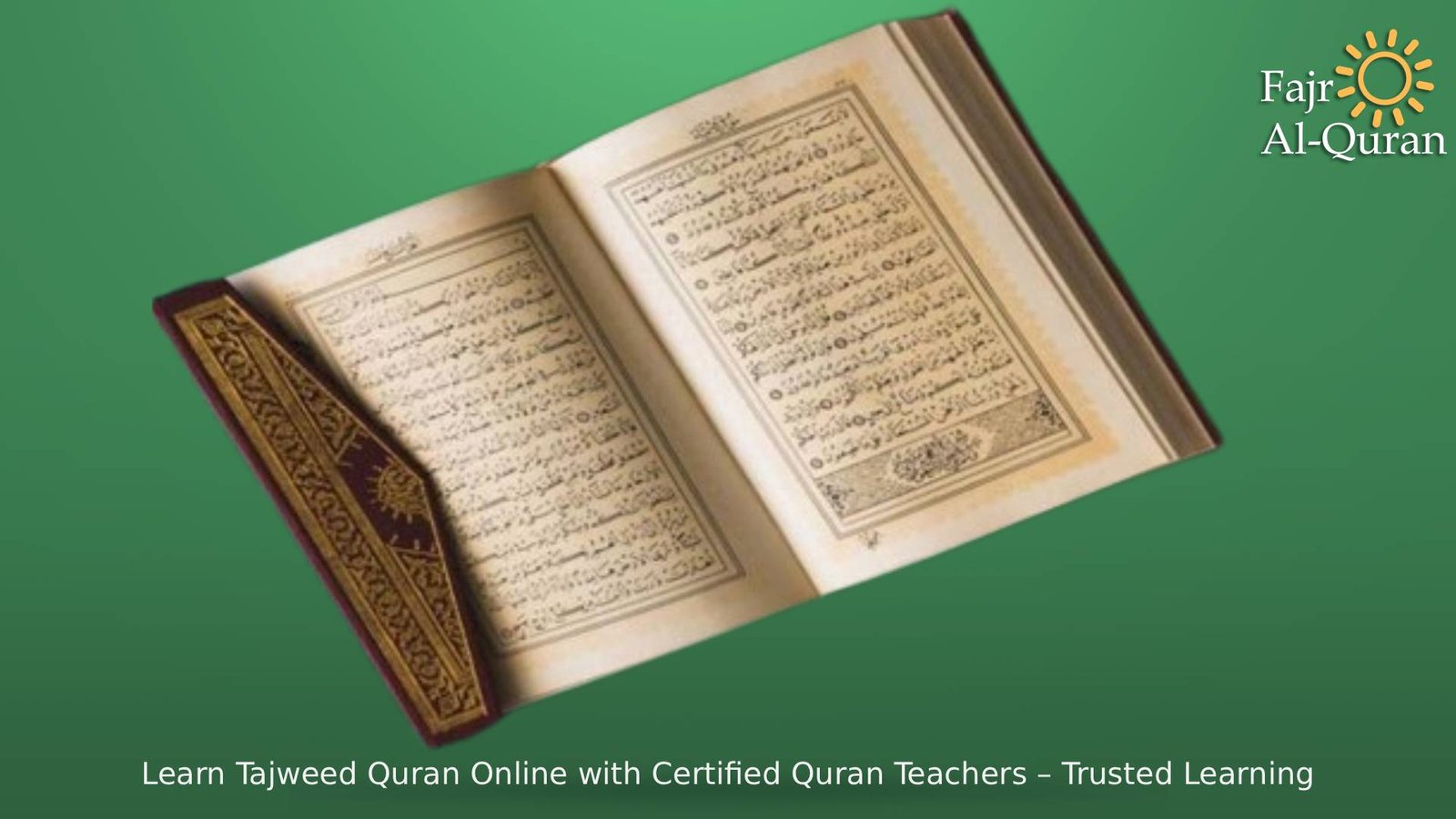
Step-by-Step Tajweed Quran Online Lessons for Beginners
Learning the rules of Tajweed is the first step toward correct and beautiful Quran recitation. Step-by-Step Tajweed Quran Online Lessons for Beginners provide a clear, simple path for beginners. Through the Leading platform Fajr Al-Quran Academy, students can learn the Quran online with Tajweed in a supportive and well-structured environment.
Tajweed Quran Online lessons focus on gradual progress, helping beginners understand pronunciation, articulation points, and basic Tajweed rules with ease. With expert teachers and flexible schedules, learners can confidently learn Tajweed online and steadily learn Quran and Tajweed online from the comfort of their homes, building a strong foundation for accurate and confident recitation.
Tajweed Quran Online lessons for beginners, learning the Qur’an can feel overwhelming without proper guidance. That is why step-by-step Tajweed lessons online are essential. These lessons break down Quran learning into manageable stages, ensuring students build a strong foundation.
Beginner lessons typically start with:
- Arabic alphabet recognition
- Correct pronunciation of letters
- Learning short vowels, long vowels, and basic rules
- Introduction to Tajweed concepts
Through online Tajweed classes, students gradually move from letter sounds to word formation, then to verses and full surahs. Teachers use visual aids, colour-coded Tajweed Quran, audio recitation, and repetition techniques to ensure clarity and accuracy.
At Fajr Al-Quran Academy, beginners learn Quran reading with patience and encouragement. Mistakes are corrected gently, helping students develop confidence as they learn to recite the Quran with Tajweed correctly from the very beginning.
Advanced Tajweed Rules Taught by Qualified Quran Instructors
Mastering advanced Tajweed rules is essential for those who seek precision and excellence in Quran recitation. Advanced Tajweed Rules Taught by Qualified Quran Instructors are carefully designed for learners who want to deepen their understanding beyond the basics. Through the Leading platform Fajr Al-Quran Academy, students can learn the Quran and Tajweed online with expert tutors who guide them with clarity and dedication.
These advanced lessons focus on refining pronunciation, rhythm, and accuracy, ensuring that learning the Quran with proper Tajweed becomes a lifelong skill. Whether you wish to improve your recitation or start your Quran journey at a higher level, these courses offer structured guidance and personalized support.
Advanced Tajweed Quran Online learning goes beyond basic pronunciation. It focuses on mastering detailed rules such as:
- Idgham, Ikhfa, Iqlab, and Izhar
- Qalqalah
- Rules of Madd
- Heavy and light letters
- Stops and pauses (waqf and ibtida’)
These advanced Tajweed rules require expert instruction. Qualified Quran instructors play a vital role in helping students apply these rules accurately while reading the Holy Quran.
Tajweed Quran classes online allow students to practice live with certified teachers who listen carefully and correct subtle mistakes in pronunciation and rhythm. With expert tutors, students develop precision, fluency, and a deep appreciation for the art of Quran recitation.
This level of learning ensures that students not only read but truly master the Tajweed Quran online, preserving the beauty and authenticity of Quranic recitation.
Learn Tajweed Quran Online for Kids and Adults
Learning the Tajweed Quran Online has become easier and more enjoyable for both children and adults through modern online education. Learn Tajweed Quran Online for Kids and Adults offers a flexible and engaging experience through the Leading platform Fajr Al-Quran Academy, where learners can discover interactive features, colorful learning tools, and rich resources such as pdf, translations, tafsir, and digital mushaf (مصحف) options like Quranflash.
With easy scheduling, dedicated sessions, and a qualified male and female Quran teacher, students can enhance their recitation skills, focus on memorization, and explore each juz and para in a clear translation. From beginner-friendly lessons to advanced study of Surah في الملك, learners enjoy a trial class and a highly supportive environment that captures the true essence and wealth of the Quran.
One of the most powerful benefits of learning Tajweed Quran online is its accessibility to people of all ages. Whether you are enrolling your child or beginning your own Quran journey as an adult, online Quran education offers the flexibility and comfort you need.

Online Quran Classes for Kids
Children learn best through interactive, engaging methods. Online Quran classes for kids include:
- Simple explanations
- Visual tools and color-coded Mushaf
- Short sessions to maintain focus
- Encouraging male and female teachers
Kids gradually learn Quran reading, Tajweed rules, and memorization in a supportive environment.
Tajweed Quran online for Adults
Adults often seek structured yet flexible learning. Online classes allow adults to:
- Learn at their own pace
- Schedule sessions around work and family
- Improve pronunciation and understanding
- Learn Quran and Tajweed online without pressure
At Fajr Al-Quran Academy, both kids and adults receive age-appropriate instruction tailored to their learning style and goals.
One-on-One Tajweed Quran Classes Online with Certified Teachers
One-on-One Tajweed Quran Classes Online with Certified Teachers offer a personalized learning experience through the Leading platform Fajr Al-Quran Academy. Students can choose flexible scheduling, enjoy dedicated sessions, and learn using rich resources like digital mushaf (مصحف), Quranflash, translations, and tafsir. With highly qualified male and female tutors, learners enhance their Tajweed skills, focus on memorization, explore each juz and para, and truly discover the essence and wealth of the Quran through an easy, supportive trial experience.
Personal attention is one of the most effective ways to learn Tajweed properly. One-on-one Tajweed Quran classes online offer students direct interaction with certified tutors, ensuring faster improvement and deeper understanding.
In private sessions, teachers:
- Focus entirely on the student
- Correct mistakes instantly
- Adjust teaching methods based on progress
- Build confidence in Quran recitation
This personalized approach is ideal for students who want to improve specific skills, prepare for memorization, or master the Quran with proper Tajweed. One-on-one sessions are also suitable for shy learners who prefer a private and comfortable learning environment.
Interactive Tajweed Quran Online Sessions for Accurate Pronunciation
Accurate pronunciation is the foundation of correct Quran recitation, and interactive learning makes this process engaging and effective. Interactive Tajweed Quran Online Sessions for Accurate Pronunciation on the Leading platform Fajr Al-Quran Academy help students of all ages, including kids and beginner learners, learn how to read the Qur’an properly with confidence.
Guided by expert tutors, students practice Arabic sounds using color-coded Tajweed features, digital مصحف, and quranflash tools. These sessions provide rich resources, allow learners to listen carefully to Quranic recitation, discover the art of correct reading, and follow a flexible schedule designed to support consistent progress.
Modern technology has transformed Quran learning. Interactive Tajweed Quran online sessions use tools that enhance engagement and accuracy, such as:
- Live video classes
- Screen sharing of the Quran text
- Audio playback and recording
- Tajweedi colour-coded Quran tools
Students can listen to expert recitation, compare their pronunciation, and receive real-time feedback. Interactive learning makes Quran classes enjoyable and helps students correct errors early, leading to accurate and confident recitation.
Flexible Scheduling for Tajweed Quran Online Learning
Balancing daily life with Quran studies is now easier than ever through Flexible Scheduling for Tajweed Quran Online Learning. On the Leading platform Fajr Al-Quran Academy, learners of all ages, including kids and beginner students, can learn to read the Qur’an correctly at times that suit their routines. With male and female expert tutors, students study Arabic pronunciation using color-coded Tajweed features, digital مصحف, and Quranflash tools.
Tajweed Quran Online programs provide rich resources that allow learners to listen to accurate Quranic reading, discover the art of recitation, and follow a personalized schedule designed for steady progress and confidence.
One of the biggest challenges for learners is time management. Online Quran education solves this problem through flexible scheduling. Students can choose class times that fit their daily routine, regardless of time zone.
At Fajr Al-Quran Academy, students enjoy:
- Flexible class schedules
- Weekend and weekday options
- Easy rescheduling
- Trial sessions before enrollment
This flexibility makes it easier for students worldwide to start their Quran journey and maintain consistency in learning Tajweed online.
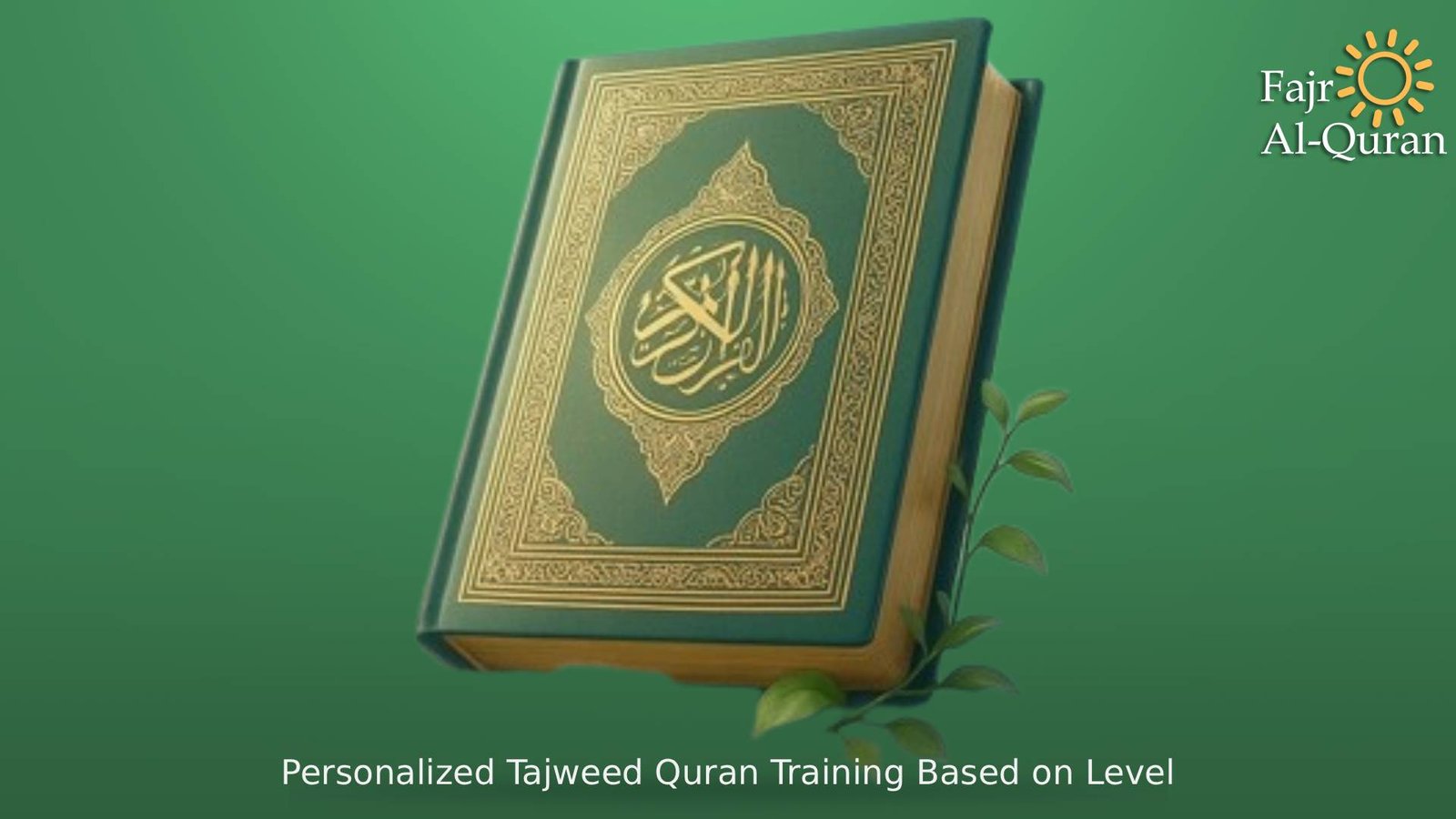
Personalized Tajweed Quran Training Based on Level
Every learner has a unique pace, which is why Personalized Tajweed Quran Training Based on Level is essential for effective progress. On the Leading platform Fajr Al-Quran Academy, students of all ages—from kids to adults—learn to read the Qur’an accurately through customized plans guided by expert tutors.
Whether you are a beginner or seeking refinement, lessons focus on correct Arabic pronunciation using color-coded Tajweed features, digital مصحف, and quranflash tools. Tajweed Quran online programs provide rich resources, encourage learners to listen carefully to Quranic reading, discover the art of recitation, and follow a flexible schedule tailored to their level.
Every learner is unique. That is why personalized Tajweed Quran training is essential for effective learning. Online Quran programs assess students’ current level and design lessons accordingly.
Personalized training includes:
- Level assessment
- Customized lesson plans
- Individual pace of learning
- Focus on weak areas
Whether the goal is Quran reading, memorization, or mastering advanced Tajweed rules, personalized instruction ensures steady progress and long-term success.
Master Tajweed Quran Online with Expert Tutors
Mastering Tajweed requires dedication, practice, and expert guidance. With qualified and certified Quran tutors, students can achieve excellence in Quran recitation from the comfort of their homes.
At the leading platform Fajr Al-Quran Academy, expert tutors are dedicated to helping students:
- Recite the Quran with proper Tajweed
- Understand Quranic pronunciation
- Improve fluency and confidence
- Connect spiritually with the Holy Quran
Through structured lessons, interactive sessions, and personalized guidance, students worldwide can truly master the Tajweed Quran online and preserve the sacred art of Quran recitation.
in conclusion
Learning the Quran with Tajweed is a lifelong journey that brings spiritual growth, inner peace, and a deeper connection to Allah. With today’s advanced online tools and certified teachers, there has never been a better time to learn Tajweed Quran online.
Whether you are a beginner, an adult learner, or a parent seeking Quran classes for kids, Fajr Al-Quran Academy offers a comprehensive, flexible, and trusted solution. Start today, improve your recitation, and experience the beauty of the Holy Quran as it was meant to be recited.

